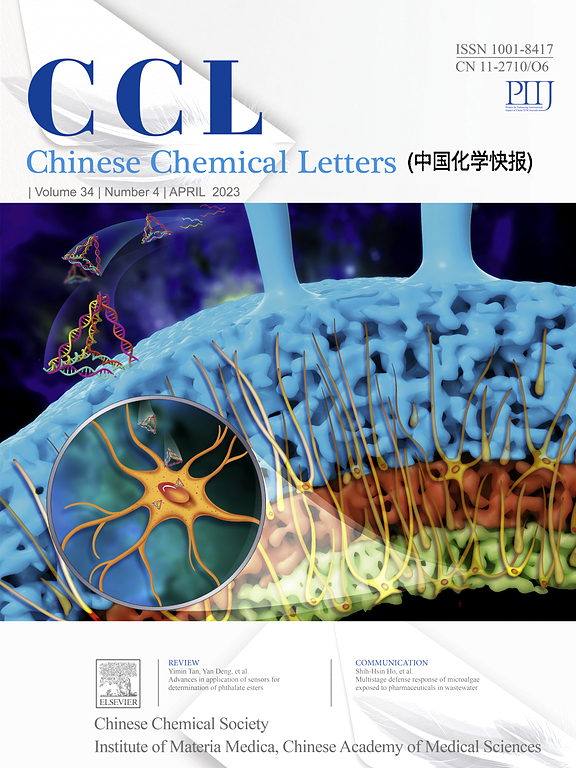Groups 3 and 4 single-site catalysts for olefin-polar monomer copolymerization
IF 9.4
1区 化学
Q1 CHEMISTRY, MULTIDISCIPLINARY
引用次数: 0
Abstract
Introducing functional polar groups into polyolefins can significantly improve the material properties, but there are still challenges in achieving this goal, with the core difficulty being that polar groups are prone to interact with metal active species, affecting the efficiency of the copolymerization. With the rapid advancement in catalyst, a variety of copolymerization strategies are developed aimed at producing more versatile polyolefin materials. Although early transition metal catalysts play an indispensable role in the traditional polyolefin industry, their inherent strong oxophilicity becomes a significant constraint in copolymerization involving polar olefins, limiting their application scope. This review summarizes the progress made in recent years in the efficient copolymerization of non-polar olefins with polar comonomers catalyzed by groups 3 and 4 single-site catalysts. We classify the catalysts into four categories, Sc-, Ti-, Zr-, Hf-, based on the type of metal centers, and provide insights into the influence of catalyst structures and the type of comonomers on the copolymerization behavior. The introduction of polar monomers fundamentally improves the comprehensive performance of the products, greatly broadens the application scope of polyolefin materials, and meets the growing market demand for multifunctional and high-performance materials.

烯烃-极性单体共聚的第3和第4基团单位点催化剂
在聚烯烃中引入功能极性基团可以显著改善材料性能,但实现这一目标仍存在挑战,其核心困难在于极性基团容易与金属活性物质相互作用,影响共聚效率。随着催化剂的快速发展,各种共聚策略被开发出来,旨在生产更通用的聚烯烃材料。早期过渡金属催化剂在传统聚烯烃工业中发挥着不可缺少的作用,但其固有的强亲氧性成为极性烯烃共聚的重要制约因素,限制了其应用范围。综述了近年来在3族和4族单位点催化剂催化下非极性烯烃与极性单体高效共聚的研究进展。我们根据金属中心的类型将催化剂分为Sc-, Ti-, Zr-, Hf-四类,并提供了催化剂结构和共聚单体类型对共聚行为的影响。极性单体的引入从根本上提高了产品的综合性能,大大拓宽了聚烯烃材料的应用范围,满足了市场对多功能、高性能材料日益增长的需求。
本文章由计算机程序翻译,如有差异,请以英文原文为准。
求助全文
约1分钟内获得全文
求助全文
来源期刊

Chinese Chemical Letters
化学-化学综合
CiteScore
14.10
自引率
15.40%
发文量
8969
审稿时长
1.6 months
期刊介绍:
Chinese Chemical Letters (CCL) (ISSN 1001-8417) was founded in July 1990. The journal publishes preliminary accounts in the whole field of chemistry, including inorganic chemistry, organic chemistry, analytical chemistry, physical chemistry, polymer chemistry, applied chemistry, etc.Chinese Chemical Letters does not accept articles previously published or scheduled to be published. To verify originality, your article may be checked by the originality detection service CrossCheck.
 求助内容:
求助内容: 应助结果提醒方式:
应助结果提醒方式:


